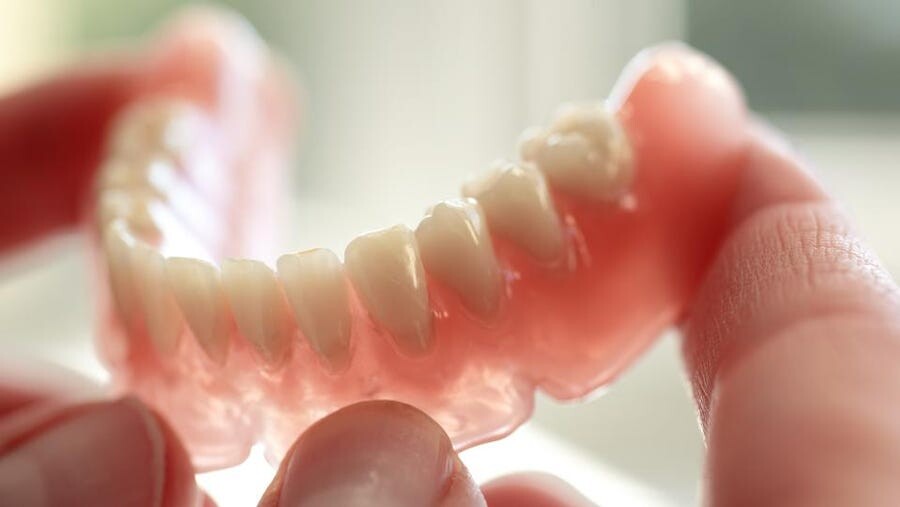Innovations in Denture Design: Exploring Materials and Design Advancements
by siteadmin

Dentures have long been a cornerstone of restorative dentistry, providing individuals with missing teeth the opportunity to regain their smile, confidence, and oral function. In recent years, advancements in materials science and design technology have transformed the landscape of dentures, offering patients enhanced comfort, durability, and aesthetics. In this blog post, we’ll delve into the exciting world of denture innovations, exploring the latest materials and design advancements that are revolutionizing the field of prosthodontics.
- Modern Materials for Enhanced Comfort and Durability: Traditionally, dentures were made from materials such as acrylic resin or porcelain, which offered adequate strength and esthetics but lacked the durability and comfort of natural teeth. Today, advancements in materials science have led to the development of innovative materials such as flexible thermoplastics, composite resins, and hybrid ceramics, which offer superior strength, flexibility, and esthetics.
Flexible thermoplastic materials, such as nylon-based polymers, offer a lightweight and flexible alternative to traditional denture materials, reducing the risk of breakage and discomfort. These materials conform to the contours of the mouth, providing a snug and comfortable fit without the need for metal clasps or adhesives.
Composite resins, reinforced with strong fibers such as glass or carbon, offer excellent durability and fracture resistance, making them ideal for patients with active lifestyles or those prone to bruxism (teeth grinding). These materials can be custom-colored to match the natural shade and translucency of the surrounding teeth, ensuring seamless integration with the smile.
Hybrid ceramic materials, such as zirconia-reinforced ceramics, combine the strength and durability of metal alloys with the esthetics of porcelain, offering a highly esthetic and long-lasting solution for fixed dentures and implant-supported prostheses. These materials are biocompatible and resistant to stains and odors, providing patients with a durable and aesthetically pleasing restoration that mimics the natural appearance of teeth.
- Digital Design and Manufacturing Technologies: Advancements in digital design and manufacturing technologies have revolutionized the process of fabricating dentures, allowing for greater precision, customization, and efficiency. Computer-aided design (CAD) and computer-aided manufacturing (CAM) software enable prosthodontists to create highly accurate digital models of patients’ mouths, capturing intricate details of the oral anatomy with precision.
With digital scanning technology, traditional impressions are replaced by digital scans of the oral cavity, eliminating the need for messy impression materials and improving patient comfort. These digital scans are then used to design customized dentures using specialized software, allowing for precise control over the shape, fit, and aesthetics of the prosthetic.
Once the digital design is finalized, advanced milling machines or 3D printers are used to fabricate the dentures from high-quality materials with unparalleled accuracy and consistency. This streamlined digital workflow reduces turnaround times and enables prosthodontists to deliver custom-fitted dentures to patients in a fraction of the time required for traditional methods.
Innovations in materials science and design technology have transformed the field of dentures, offering patients enhanced comfort, durability, and esthetics. From flexible thermoplastics to hybrid ceramics and digital design technologies, modern denture materials and manufacturing techniques are revolutionizing the way we restore smiles and improve oral health. As these advancements continue to evolve, patients can look forward to a future where dentures are not only functional and durable but also seamlessly integrated with their natural smile, restoring confidence and quality of life for individuals with missing teeth.
Dentures have long been a cornerstone of restorative dentistry, providing individuals with missing teeth the opportunity to regain their smile, confidence, and oral function. In recent years, advancements in materials science and design technology have transformed the landscape of dentures, offering patients enhanced comfort, durability, and aesthetics. In this blog post, we’ll delve into the…
Recent Posts
- The Complete Guide to Denture Fitting, Adjustment, and Maintenance
- Innovations in Denture Design: Exploring Materials and Design Advancements
- Exploring the Evolution of Diagnostic Dentistry: Paving the Way for Precision Care
- Rediscovering Smiles: A Comprehensive Guide to Dentures
- Unveiling the Smile: Exploring the Art and Science of Dentistry
